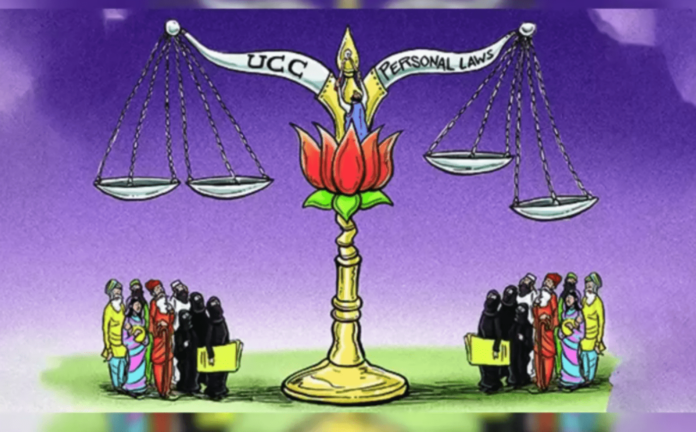Prime Minister Narendra Modi’s endorsement of the Uniform Civil Code (UCC) has sparked a new wave of discussions among religious groups about how it will affect their personal laws. The primary objective of the UCC is to streamline existing laws related to marriage, divorce, adoption, inheritance, succession, and guardianship.
If the UCC is implemented, it would establish a standardized minimum legal age for marriage, eliminate the practice of bigamy, and address issues surrounding interfaith marriages.
According to Article 44 of the Indian constitution, the state is tasked with striving to secure a Uniform Civil Code for all citizens throughout the country.
Given that various religions currently adhere to their own personal laws governing interpersonal relationships and related matters, the UCC aims to replace these individual laws with a single code applicable to all. Let’s explore how different religions and their personal laws could be impacted if the UCC is enforced.
Hinduism: If the UCC is introduced, existing laws such as the Hindu Marriage Act (1955) and the Hindu Succession Act (1956) would need to be amended. For instance, Section 2(2) of the Hindu Marriage Act excludes its provisions from applying to Scheduled Tribes, while Sections 5(5) and 7 of the law state that customary practices override its provisions. However, the UCC would not allow for such exceptions.
Islam: Under the Muslim Personal (Shariat) Application Act of 1937, Islamic law, or Shariat, governs matters of marriage, divorce, and maintenance for Muslims. If the UCC is implemented, the minimum age of marriage under Islamic law may change, and the practice of polygamy could be abolished.
Sikhism: Marriage laws for Sikhs are currently governed by the Anand Marriage Act of 1909, which lacks provisions for divorce. In the event of the UCC’s introduction, a uniform law would likely apply to all communities, including marriages registered under the Anand Act.
Parsi: The Parsi Marriage and Divorce Act of 1936 stipulates that a Parsi woman who marries someone from another religion forfeits all rights to Parsi rituals and customs. However, this provision would be abolished under the UCC. Additionally, Parsis do not recognize the rights of adoptive daughters, and an adopted son can only perform the last rites of his father. If the UCC is implemented, guardianship and custody laws would become uniform across all religions, eliminating such distinctions.
Christianity: The UCC would impact Christian personal laws concerning inheritance, adoption, succession, and, notably, marriage and the non-recognition of divorce by the Catholic Church, which would require further consideration. Currently, Section 10A(1) of the Christian Divorce Law mandates a separation period of two years for couples seeking mutual divorce. However, if the UCC is introduced, this requirement would apply universally. Moreover, the Succession Act of 1925 denies Christian mothers any rights to their deceased children’s property, as it is inherited solely by the father. This provision would also be abolished under the UCC.
It is important to note that the discussion surrounding the UCC and its potential impact on personal laws is a subject of ongoing debate and consideration. Any changes to personal laws would require careful examination, consultation, and consensus-building among religious communities, legal experts, and policymakers to ensure the protection of individual rights and religious freedoms while striving for a more harmonized legal framework.




